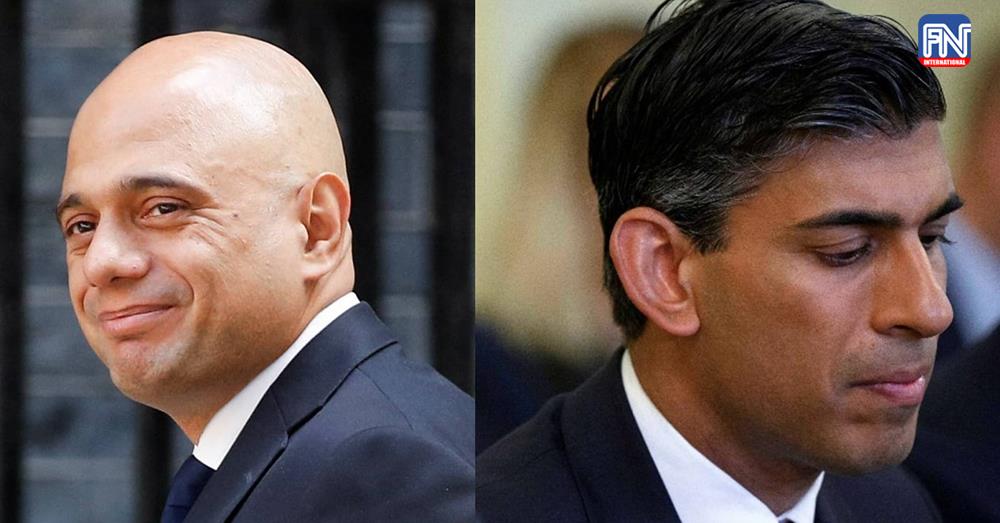LONDON, July 5 (Reuters) - British Prime Minister Boris Johnson was fighting for his political survival on Tuesday (Jul 5) after finance minister Rishi Sunak and another senior minister abruptly resigned over the latest scandal to blight his administration.
Sunak and health minister Sajid Javid sent resignation letters to Johnson within minutes of each other in which both took aim at his ability to run an administration that adhered to standards.
Signalling his intention to stay in power for as long as possible, Johnson quickly appointed former businessman and current education minister, Nadhim Zahawi, as his new finance minister. Steve Barclay, appointed to impose discipline in Johnson's administration in February, was moved to the health portfolio.
The resignations came as Johnson was apologising for appointing a lawmaker to a role involved in offering pastoral care to his party, even after being briefed that the politician had been the subject of complaints about sexual misconduct.
So far, they are the only two ministers in the prime minister's top cabinet team to resign, with other senior figures expressing support for Johnson. Foreign minister Liz Truss, considered a leading contender to replace him, said she was "100 per cent behind the PM".
Four other lawmakers quit junior government roles while a trade envoy stood down and a vice chairman of the Conservative Party resigned his post on live television.
The resignations come after months of scandals and missteps, with Johnson so far weathering criticism over a damning report into parties at his Downing Street residence and office that broke strict COVID-19 lockdowns and saw him fined by police.
There have been other policy U-turns, an ill-fated defence of another lawmaker who broke lobbying rules and he has also come under fire for not doing enough to tackle a cost-of-living crisis, with many Britons struggling to cope with rising fuel and food prices.
Economists say the country is now heading for a sharp slowdown or possibly a recession. Both Sunak and Javid had previously publicly supported Johnson, but in their letters said enough was enough.
Sunak, who had reportedly clashed with the prime minister in private about spending, said: "For me to step down as Chancellor (of the Exchequer) while the world is suffering the economic consequences of the pandemic, the war in Ukraine and other serious challenges is a decision that I have not taken lightly."
"The public rightly expect government to be conducted properly, competently and seriously," he added. "I recognise this may be my last ministerial job, but I believe these standards are worth fighting for and that is why I am resigning."
Sunak had won plaudits for a steady-handed response to the economic turmoil caused by the COVID-19 pandemic, but was badly damaged by revelations that his wife had avoided paying some taxes in Britain.
Javid said many lawmakers and the public had lost confidence in Johnson's ability to govern in the national interest.
"It is clear to me that this situation will not change under your leadership - and you have therefore lost my confidence too," his letter said.
The pound fell on the resignation of Sunak but economists said a removal of Johnson could bring needed stability and offer a boost to sterling and the markets in the medium term.
